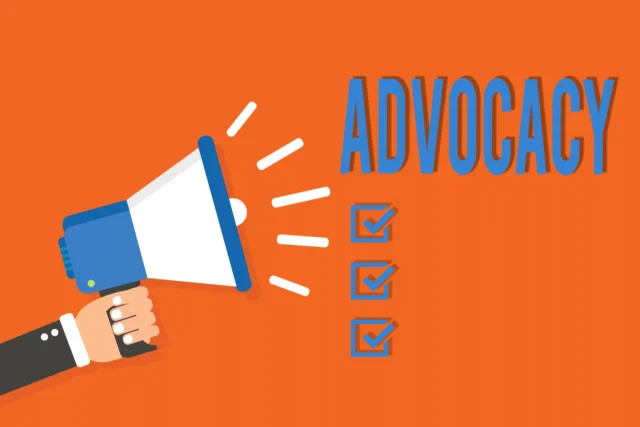
Lobbying in the US is more than a political tactic. Industries and corporations leverage it to influence regulations and legislation in their favor. Healthcare, insurance, electronics manufacturing, electric utilities, and business associations are a few industries spending the most on these initiatives.
Tech giants such as Apple, Microsoft, Google, Meta, and Amazon spent nearly $69 million on lobbying in 2022. But lobbying is not just for corporate biggies with massive revenues and budgets.
Statistics show that it broke all records in 2021 as the revenue soared to $3.7 billion for the first time. Nearly 3700 new companies hired lobbyist firms to pressure the government and make their voice heard regarding rules affecting healthcare, tourism, travel, and other industries.
These numbers are inspiring for small businesses looking to hire lobbyists to protect their operations from regressive regulations. As an entrepreneur, you can rely on the approach to drive a positive change for your business.
Here are a few ways an ethical and transparent lobbying strategy can help:
Policy Advocacy

Policies and regulations often have good intentions, but they may not always favor small businesses. At times, legislators create policies that may break small players that cannot bear the impact. Consider the example of Massachusetts, where mobile sports betting was legalized in 2025.
While the legislation was gaining momentum, many big names in the industry were campaigning for the cause. The passing of the law shows the power of standing up and raising a voice to highlight the needs and concerns of your business to policymakers.
Many businesses in Massachusetts took the cue and followed suit to advocate for their causes. Size should hardly matter in this context, and several entrepreneurs in Boston proved it. Even if you run a small company in Boston, you can consider working with a Boston lobbying firm to represent your interests and make them heard by lawmakers.
According to Corry Associates, strategies like newsletters, social media outreach, and letter-writing campaigns can be game changers when it comes to policy advocacy. The best part is that small businesses can afford these tactics because they are cost-effective. If you have a genuine cause, such as getting tax incentives for growth, you should go ahead with the initiative without second thoughts.
Access to Resources
Resources such as grants, funding, and mentorship programs can be saviors for small businesses. Imagine how government funding or grants can keep your organization afloat amid an economic crisis.
But what if the government hardly pays attention to your industry? Lobbying groups can help your industry and organization get the attention they deserve. By advocating for increased funding for industry-specific development initiatives, they can help entrepreneurs get more opportunities to survive and thrive.
Beyond direct funding and grants, they can advocate for streamlined policies, tax incentives, and reduced bureaucracy that make it easy to run your business.
Networking and Collaboration

Leading lobbying spenders in the US in 2022 include names like the National Association of Realtors, the US Chamber of Commerce, and the Pharmaceutical Research and Manufacturers of America. While these big players spend millions, small businesses can hardly come close to them because of limited resources.
However, lobbying brings them together as they collaborate for a common cause. They form robust networks that go beyond standing up for an issue that matters to all. Through these networks, they can share ideas and find opportunities for partnerships and growth. There can hardly be a better way to fuel the growth of your organization than working with your peers.
This collaboration often paves the way for innovative solutions, with some businesses even engaging a management consultant Australia to navigate complex regulatory environments and market dynamics. The synergy between diverse organizations, bolstered by expert insights, creates a formidable force in advocacy and business development. Together, they can leverage their collective influence for favorable policies while exploring new avenues for expansion, proving that unity in purpose can bridge the gap between small entities and industry titans.
Fair Competition
Most markets in the US are ruled by big players. Smaller organizations hardly get the space and visibility they deserve. They are inherently disadvantaged because they lack the influence and financial resources the larger corporations have. You will probably know the struggle if you are a small player in a big industry like healthcare or public utilities.
Lobbying can help you put across your opinion in the legislative process, leveling the playing field to some extent. This balance of influence may result in fair competition in the market. You can even lobby for regulations preventing anti-competitive practices in your industry.
Fairtrade policies and agreements are worth fighting for because they may open up global markets for small players. Once you build an international outreach, you can expand your customer base, increase growth, and reach at par with big brands.
Education and Awareness

Lobbying, often seen as a tool for large corporations, can be equally beneficial for small businesses. However, the key lies in understanding its potential. Many small business owners remain unaware of the advantages lobbying can offer. It’s not just about influencing legislation; it’s about voicing concerns, shaping industry standards, and ensuring a favorable business environment. Workshops, webinars, and informational campaigns can be instrumental in educating these entrepreneurs. For instance, a bakery owner might lobby for lower tariffs on imported ingredients, directly reducing costs and increasing profits.
Compliance and Ethics
Venturing into lobbying requires a keen understanding of its legal landscape. Small businesses must ensure they’re compliant with all lobbying regulations, which can vary by region. Ethical considerations are equally paramount. Lobbying should be a transparent process, devoid of any under-the-table dealings. For example, hiring a lobbying consultant who is well-versed in both the legal and ethical aspects can be a wise investment. This ensures that the business’s lobbying efforts are above board and effective.
Measuring ROI
Like any business strategy, it’s vital to measure the effectiveness of lobbying efforts. Small businesses should set clear objectives at the outset. Is the goal to influence a specific piece of legislation, or to raise awareness about a broader industry issue? By setting measurable goals, businesses can evaluate the tangible impacts of their lobbying, be it in cost savings, increased revenues, or other beneficial policy outcomes.
Wrapping Up
Lobbying can empower small businesses, provided it is done the right way. Your efforts should be ethical, transparent, and inclusive. At the same time, you should follow an authentic cause that aligns with the broader interest of consumers and society as a whole. By doing so, you can make a difference and carve a niche for your small business.









